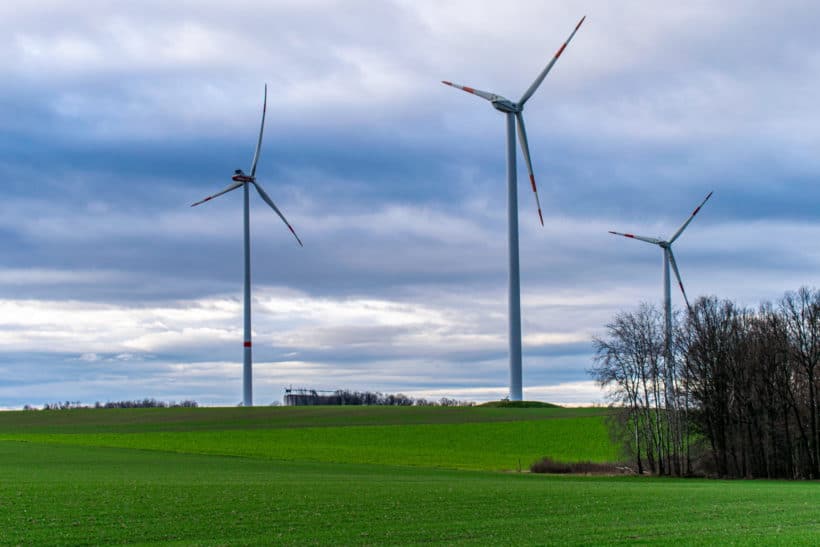
Sharan Burrow is General Secretary of the International Trade Union Confederation and Co-Chair of the Global Commission on the Economy & Climate
The global jobs crisis casts a long shadow over the promises of economic recovery. But if we let jobs and sustainable infrastructure go together hand in hand, along a path we call just transition, those promises can be realised.
Serious health, social, and economic crises were laid bare by COVID-19, exposing the inequities of the current system. Workers have lost trillions in income and millions of people have been pushed into poverty while billionaires have prospered. We now have a jobs crisis, with a global unemployment gap equivalent to 127 million full-time jobs in the second quarter of 2021.
To reach full employment and realise Goal 8 of the SDGs, 575 million new jobs need to be created by 2030. Women in particular have been affected by job losses, with 90% of those who lost their jobs in 2020 leaving the labour market, and losing around $800 billion of income globally. And the lack of social protection measures in too many countries leaves people and economies with no resilience.
At the same time, the world is facing a climate emergency. The IPCC’s latest report made clear we need rapid, transformational change to limit global warming to 1.5 degrees Celsius. We are already experiencing the impacts of climate change. Time is running out and we need to act now.
In attempts to address health impacts of the coronavirus pandemic and staunch the hemorrhaging of their economies, many countries embarked on ambitious spending plans. Some prioritized spending on greener policies, including the EU and Canada.
Unfortunately, too many governments have channeled too much money to infrastructure that is unsustainable. This moves us backward in our fight against climate change and backward in our efforts to create good jobs.
Dollar per dollar, investments in climate-friendly infrastructure create more jobs than the same investment in unsustainable infrastructure, according to new research. Compared to fossil fuels, investing in building efficiency creates 2.8 times as many jobs on average, solar PV 1.5 times as many jobs, and wind energy 1.2 times as many jobs. The fossil fuel industry is highly automated. But building renewable energy and making buildings more efficient are labour intensive.
It’s not just the clean energy sector that has a jobs advantage. Per dollar, investing in mass transit creates 1.4 times as many jobs as road construction, and dedicated pedestrian or cycling infrastructure creates 1.3 to 1.4 times as many jobs as roads — and makes other jobs more accessible to low-income workers. And investing in nature-based solutions like ecosystem restoration creates more jobs than almost any other type of investment.
Sustainable sectors also provide safe opportunities for lower skilled workers. Construction sector jobs — key for renewable energy, mass transit, or electric vehicle (EV) charging projects — offer lower barriers to entry for people with less formal years of education.
Of course, it’s not just the number of jobs created that is important. Workers want and deserve good, quality jobs — open to all — with fair wages, decent benefits, job security, skills development, safety, and opportunities for social dialogue.
Increasing union representation in climate-friendly jobs helps workers earn higher wages with good benefits and tough safety standards. Fossil fuel workers fought for decades for better labour standards and successfully transformed originally poor working conditions into quality jobs. The clean energy industry needs those same opportunities.
In some cases, job transitions will be complicated. Shifting from internal combustion engine vehicles to EVs will create more jobs in the overall economy, but since EVs have fewer parts and less need for maintenance, some manufacturing and repair jobs will be lost. We cannot leave people stranded.
Governments need to work with workers, their unions and employers to enhance job quality within sustainable sectors. That means: Developing just transition strategies that ensure workers and communities are not left behind; providing government support for the care economy, including education and public health; and providing social protections that build a skilled and resilient workforce.
Being a woman or member of other historically excluded groups should not limit access to good quality jobs. Sustainable jobs can be a positive for women in the workforce. Providing affordable childcare options, instituting policies against sexual harassment and discrimination, and establishing mentorship programs help ensure jobs in climate-friendly sectors are obtainable for all.
We also need to formalize the informal economy. There are high numbers of informal workers in lower-income countries, including in sectors where climate-friendly jobs are located like construction and agriculture. They deserve the same wages, work security, and social protections that full-time, permanent staff have. South Africa’s Water for Work Programme, for example, improved job security by allowing workers to shift from short-term to longer-term contracts.
Right now, we are far from securing a just and equitable future on a livable planet. We need hope — that workers will be included in energy transition plans, and that there will be just transition plans in place for all sectors. This is how we plan for good jobs, and how we’ll achieve our emissions targets and avoid the worst impacts of climate change. Investing now in infrastructure that provides both jobs and climate dividends can turn hope into reality.
This isn’t a walk in the park, and we’re in a race against time. Jobs— climate-friendly jobs with just transition — are central to establishing a new social contract and building hope for people and communities. Let’s get to work.